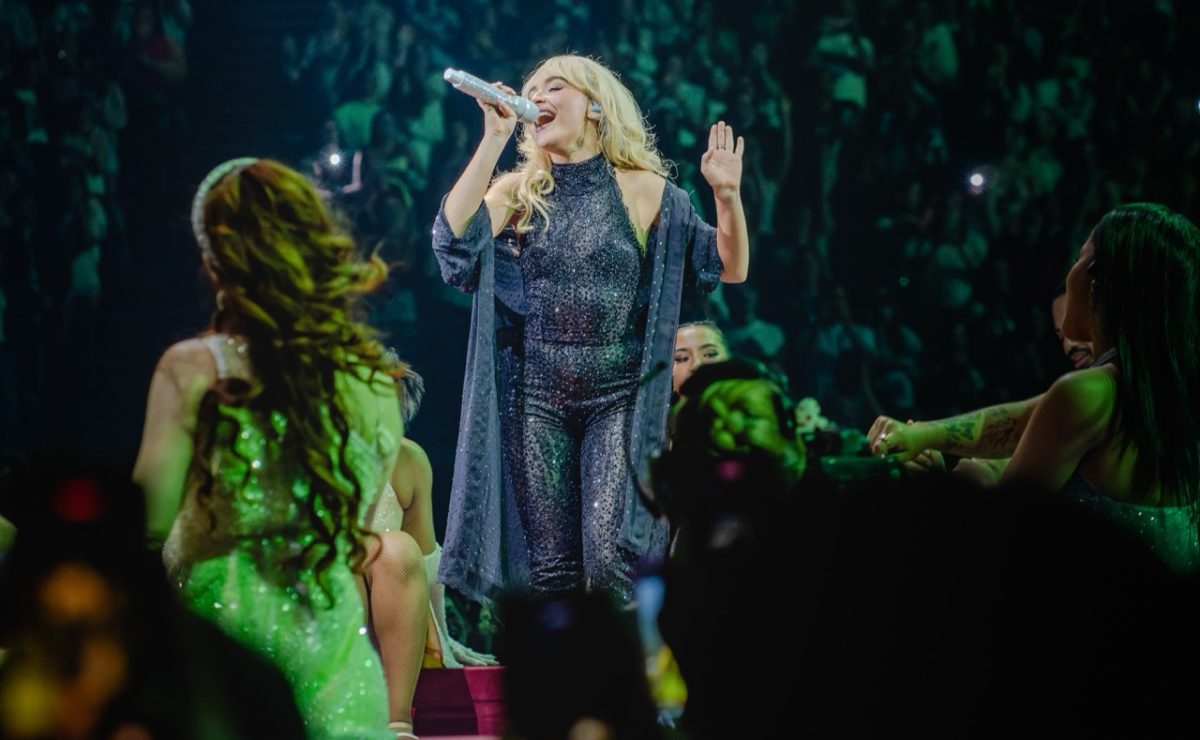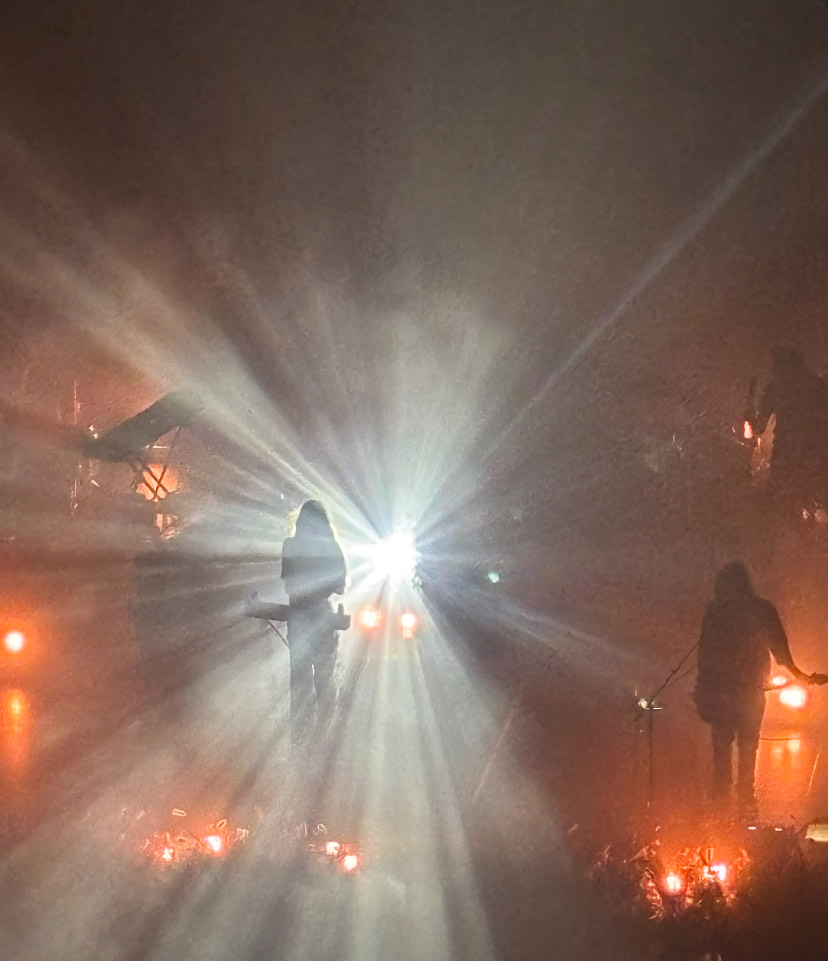
TMW: Why did you choose to become a studio art major?
KH: I bounced around a lot. I transferred to Macalester in my sophomore year. My first year here I started out thinking about geography, but then I took a geography class I didn’t like very much. After that I became interested in history and thought I could perhaps minor in art history. Since you have to take art classes to fulfill the art history requirement, I took a painting class and really enjoyed it. Art was the only thing that I looked forward to in my schoolwork and that is why I decided to become a studio arts major.
Have you always been interested in arts?
My grandpa was an artist on the East Coast. I grew up around art and would go to my grandpa’s openings when I was a kid. So art was always at the back of my mind. But I never seriously thought about doing anything with it, so it is more like I stumbled into it.
What is it about art that fascinates you?
What I like about it as opposed to other fields of study is that it is more open-ended. You can get something through asking a question or being ambivalent. It is less explicit than writing. Also making artwork is more approachable—it is not like “this is my claim, this is my critique, this is my essay.” There is more room for people to understand things in their own ways. It is more like asking questions, drawing connections and fostering empathy rather than offering solutions.
Could you describe a piece of work that you recently made?
When I was asked to respond to the inauguration, I started to think about how Levi’s jeans are quintessentially American. And I tried to connect this idea with an unfounded nostalgia or image of what America should be. It is a worn out idea because it is a rejection of multiculturalism and it is a rejection of minorities who have been swept under the rug. That idea has been worn to its breaking point. Likewise, these jeans are literally pants that I used to wear. I am interested in how this process where jeans can be used as a metaphor for a used-over-and-over-again political ideology that rejects so many people.
Why are there different layers of silk on top of the jeans?
The silk has its faded red, white and blue colors, which I think are a very obvious reference to the US. It also represents a weird contradiction because silk is usually used in a formal way. As the jean is worn but is also preserved in this aesthetic way, [it mirrors] a political ideology getting romanticized. Trump’s supporters are so romantic about the idea of building a wall. Taking a step back, there is no empathy in this idea. But this idea gets romanticized, and I am trying to evoke that feeling.
Do you think empathy is very important to an artist?
Yes. I also think that it is important from time to time to not be super confrontational in your work. I do not want someone on the right who looks at my work to feel threatened, although I am not sympathetic towards right-wing supporters and my work is a critique of right-wing ideology.
The reason why I am making art is to walk this line of being formal and engaging with politics. A lot of art that does not engage with politics right now—it’s like, what is the point? There is so much at stake. Artists and people in any field have an obligation to be somewhat of an agitator, trying to make their community a little better.
My interview with Kevin ended with him telling me that he plans to go to graduate school to pursue an MFA and that he might become a teacher of some kind in the future. It made me think again about the promise that the arts hold for generations after generations of people. It also made me think one more time about my doodlings, and how they, in retrospect, become significant in ways that I have never imagined.







Dylan Marshall • Sep 12, 2019 at 4:41 am
Another thing I’ve noticed is the fact that for many people, low credit score is the reaction of circumstances past their control. For example they may happen to be saddled having an illness and as a consequence they have higher bills for collections. It would be due to a job loss or perhaps the inability to go to work. Sometimes divorce can send the financial situation in an opposite direction. Thanks for sharing your notions on this blog site.
Benjamin Mathis • Sep 9, 2019 at 5:09 pm
I’m really impressed with your writing skills and also with the layout on your blog. Is this a paid theme or did you customize it yourself? Either way keep up the excellent quality writing, it is rare to see a great blog like this one these days..